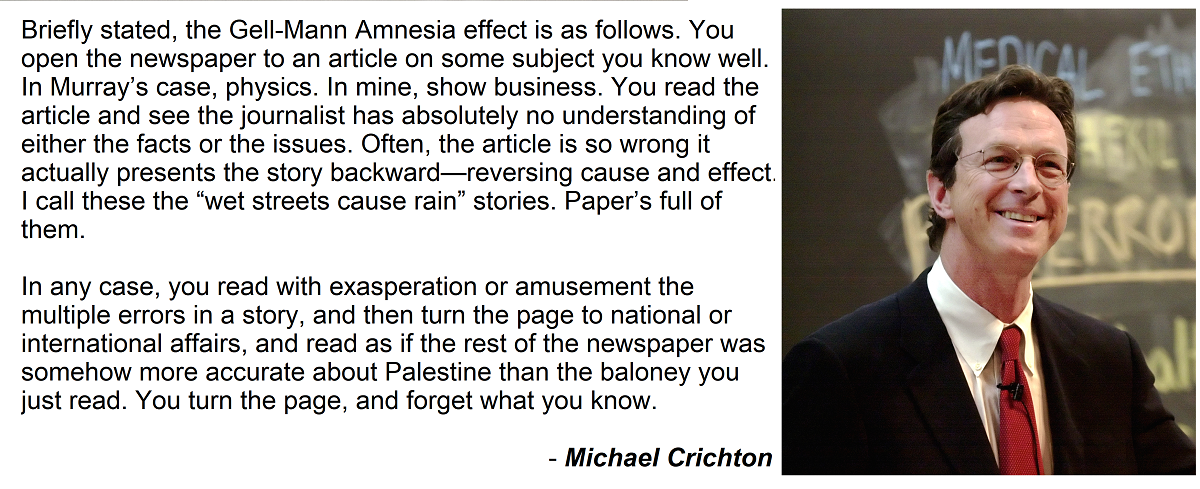Beware the Gell-Man effect
The more you read, the more you understand. The more you understand, the more you think. The more you think, the more you doubt. The more you doubt, the more you … have to read. So it goes.
Beyond the necessities of daily life (mostly schoolwork), reading books is treated as a rarefied intellectual activity. Writers bemoan the lack of recreational reading. Parents and teachers blame its decline as the leading cause of subpar grades. Perhaps anyone privileged enough to grow up in a home where books are prized possessions has heard this complaint threading its way, in one form or another, through numerous social commentaries: people today read far fewer books and instead spend their time on vapid distractions such as TV and social media. I will not debate the statistical merit of this claim. It may very well be the case that a survey of reading habits across generations will reveal that the proportion of time spent reading books has declined dramatically over the years. What seems odd to me is the special treatment that books receive compared to other media such as television or the Internet. Why can’t a book be just as vapid as a TV show or a social media site?
Dubious claims by social media users can be dismissed as fabrications and ill-informed half-truths. News reports can be explained away as sensational journalism. A book is harder to disregard, and for good reason. It is harder to deceive and mislead over the length of a book than through short, spicy snippets. Also, the process of writing a book is a significant investment for the author, including the not inconsiderable effort required to get it published. These factors conspire to discourage content that is shallow, deceptive, or otherwise vulnerable to scrutiny. However, this does not imbue the medium with some sort of magical immunity.
Previously, I thought any book is better than none, since I had bought into the despair over lack of readership. Lately, I’ve had to revise my opinion. Reading purely for its own sake certainly has its rewards, especially compared to other pastimes (such as refreshing your Facebook news feed) that have no meaningful payoff. A lack of focus can help you discover gems that might otherwise have been missed. But the flip side is that it can prevent you from recognizing mediocrity. Without proper context, it is easy to mistake a persuasive piece of text as a well-rounded, convincing explanation of a given subject. It is difficult to truly judge the quality of a book without reading others that address the same topic. My personal rule of thumb is that I don’t even think about stating my opinion on a subject before I’ve read at least five books on it, ideally by five different authors; detailed and rigorous articles will also suffice in some cases.

This subtle deception (perhaps unintentional, giving authors the benefit of the doubt) is particularly insidious for two reasons: 1. it can create false impressions without lying or even directly misleading, and 2. it can trick knowledgeable individuals in matters outside their area of expertise. The second reason is aptly demonstrated by the phenomenon that has come to be known as the “Gell-Mann Amnesia effect”, a phrase coined by the author and filmmaker Michael Crichton, of Jurassic Park fame, name-dropping the famous Nobel Prize winner physicist Murray Gell-Mann.
Of course, this phenomenon is not restricted to news media, although that is where it is the easiest to observe. You may be in greater danger of being deceived by a journalist than a book author, but the danger exists nevertheless. The bottom line is: be very careful when you step outside your area of expertise.
Looking at the assortment of popular books, it seems to me that some people should read less (and others should write less). It is hard to justify such a statement in a world where a lack of bibliophilia is blamed for many social and political issues, but I will give it a try. Books, after all, are just another way of communicating information. There is nothing inherently noble about them compared to the other media that we are so fond of criticizing. Every medium has its pros and cons, none of them are immune to BS. It is presumed that reading a book is an exercise in expanding one’s knowledge, but those who indulge in it should be aware of an important caveat. A little knowledge is a dangerous thing.
